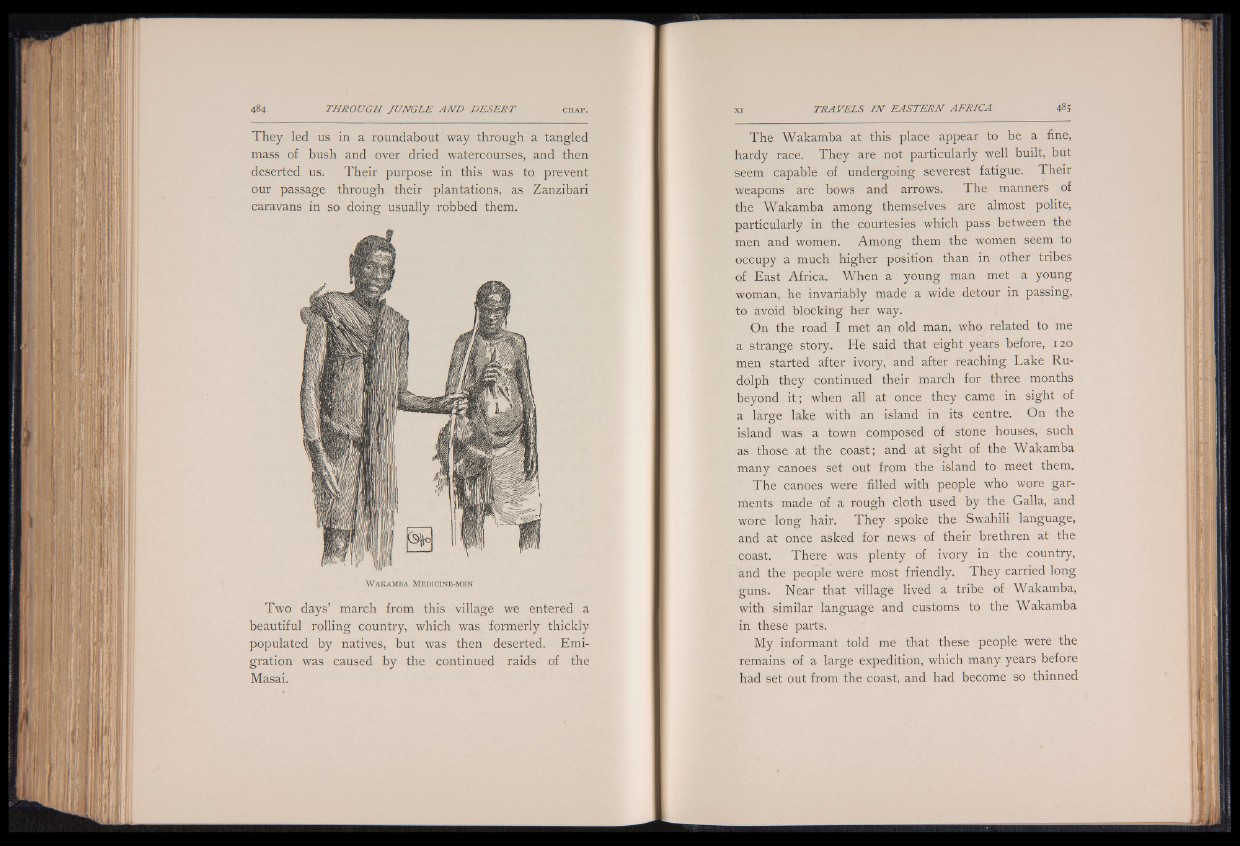
They led us in a roundabout way through a tangled
mass of bush and over dried watercourses, and then
deserted us. Their purpose in this was to prevent
our passage through their plantations, as Zanzibari
caravans in so doing usually robbed them.
Two days’ march from this village we entered a
beautiful rolling country, which was formerly thickly
populated by natives, but was then deserted. Emigration
was caused by the continued raids of the
Masai.
W a k a m b a M e d i c in e -m e n
The Wakamba at this place appear to be a fine,
hardy race. They are not particularly well built, but
seem capable of undergoing severest fatigue. Their
weapons are bows and arrows. The manners of
the Wakamba among themselves are almost polite,
particularly in the courtesies which pass between the
men and women. Among them the women seem to
occupy a much higher position than in other tribes
of East Africa. When a young man met a young
woman, he invariably made a wide detour in passing,
to avoid blocking her way.
On the road I met an old man, who related to me
a strange story. He said that eight years before, 120
men started after ivory, and after reaching Lake Rudolph
they continued their march for three months
beyond i t ; when all at once they came in sight of
a large lake with an island in its centre. On the
island was a town composed of stone houses, such
as those at the coast; and at sight of the Wakamba
many canoes set out from the island to meet them.
The canoes were filled with people who wore garments
made of a rough cloth used by the Galla, and
wore long hair. They spoke the Swahili language,
and at once asked for new’s of their brethren at the
coast. There was plenty of ivory in the country,
and the people were most friendly. They carried long
guns. Near that village lived a tribe of Wakamba,
with similar language and customs to the Wakamba
in these parts.
My informant told me that these people were the
remains of a large expedition, which many years before
had set out from the coast, and had become so thinned